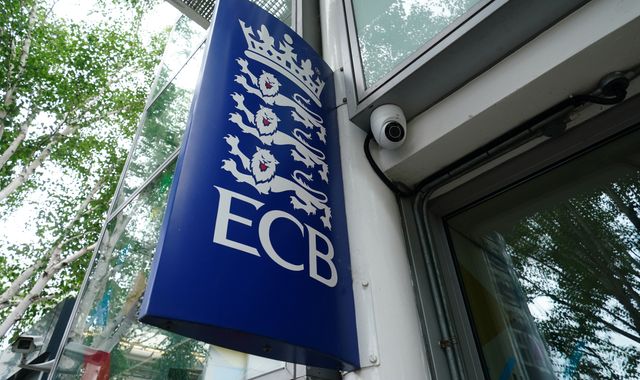
The England and Wales Cricket Board (ECB) has confirmed that transgender women will no longer be permitted to take part in female competitions at all levels with immediate effect.
The change in policy follows the law announced by the UK Supreme Court on April 16, unanimously ruling that a woman is defined by biological sex under equality law.
Trans women had been banned from the top two tiers of elite women's cricket and The Hundred since the start of this year, but were still able to compete in the women's game up to and including tier three of the domestic game and throughout recreational cricket.
- FA confirms trans women will no longer play in women's football
However, this new ruling will not allow transgender women to compete at any level in women's cricket.
"With immediate effect, only those whose biological sex is female will be eligible to play in women's and girls' cricket matches," the ECB said in a statement.
"Transgender women and girls can continue playing in open and mixed cricket.
"Our regulations for recreational cricket have always aimed at ensuring that cricket remains as inclusive a sport as possible.
"These included measures to manage disparities, irrespective of someone's gender, and safeguard the enjoyment of all players.
"However, given the new advice received about the impact of the Supreme Court ruling, we believe the changes announced today are necessary.
"We acknowledge that this decision will have a significant impact on transgender women and girls. We will work with recreational cricket boards to support people impacted by this change in our regulations.
"We await updated guidance from the Equality and Human Rights Commission (EHRC) and will study this carefully.
"We maintain that abuse or discrimination has no place in our sport and are committed to ensuring that cricket is played in a spirit of respect and inclusivity."
Transgender men (female at birth) would be eligible for women's cricket, although the ECB says it is also awaiting updated guidance from the EHRC.
The decision comes a day after the Football Association confirmed transgender women will no longer be able to play in women's football in England from June 1.
On Thursday, England Netball also announced that transgender women were no longer able to compete in women's netball from September 1.
In doing so, it recognised three gender participation categories - female, male, and mixed netball - with the mixed category to serve as the sport's inclusive category, allowing players to compete under the gender they identify.
The Ultimate Pool Group (UPG) became the first sports body to update its policies since the ruling when it barred transgender women from its female category on April 24.
What does the ICC policy say?
In November 2023, the International Cricket Council (ICC) announced that transgender players who have been through male puberty would not be able to play international women's cricket under its gender eligibility regulations.
In September 2023, Canada's Danielle McGahey had become the first transgender cricketer to take part in an official international match when she featured in a Women's T20 fixture against Brazil.
The 29-year-old opening batter went on to play all six of Canada's matches during the Women's T20 World Cup Americas region qualifiers event in Los Angeles, to add to national team appearances previously in fixtures which did not hold official ICC status.
Under the ICC's previous regulations, which were effective from October 2018 and amended in April 2021, McGahey had satisfied all of the eligibility criteria.
(c) Sky Sports 2025: England and Wales Cricket Board confirms transgender women no longer able to take part in female competitions



 Man Utd: Kobbie Mainoo says Europa League win won't make 'bad season' a success
Man Utd: Kobbie Mainoo says Europa League win won't make 'bad season' a success
 Luis Diaz: Liverpool forward to open contract extension talks at end of season
Luis Diaz: Liverpool forward to open contract extension talks at end of season
 Ronnie O'Sullivan: Seven-time winner knocked out of World Snooker Championship as Zhao Xintong reaches final
Ronnie O'Sullivan: Seven-time winner knocked out of World Snooker Championship as Zhao Xintong reaches final
 World Snooker Championship: Ronnie O'Sullivan loses all EIGHT frames of Friday morning session to trail Zhao Xintong
World Snooker Championship: Ronnie O'Sullivan loses all EIGHT frames of Friday morning session to trail Zhao Xintong










